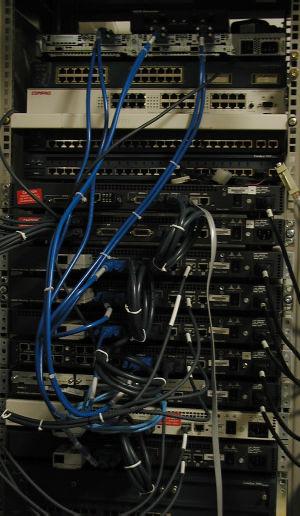INFORMATION TECHNOLOGIES SECURITY PROGRAM
 
Click here for detail course outlinetartshem |

With its emphasis on the use of Open-Source-based methodologies and tools to achieve the objective of network and server security for organizations, the
OSSA™ teaches a vendor-independent approach to practical issues surrounding IT security and is geared towards equipping participants with the
knowledge and skills necessary to secure their organizations from both internal
and external threats. The internationally-accredited program is an Enterprise-level, IT-Security
Certification that is designed specially for the following groups of people:
- Technical staff who are interested in learning more about real-world,
practical IT Security from technical, procedural and legal standpoints, who
are responsible for the security of their organization's infrastructure or who
are interested in a career in IT Security.
- IT-Security Professionals looking for practical and hands-on technical
enterprise-level security training & certification.
- IT Professionals who are looking to get into the IT-Security industry.
- Those looking for Enterprise-relevant IT-Security training which use
practical lab-based certification training and examination that will not
devalue over time, unlike courses with theory-only exams.
|
 rtshem rtshem
The Organizational Systems Wireless Auditor™ (OSWA™) is focuses primarily on providing attendees with the technical knowledge, methodology and skills to executing a wireless audit or penetration test. Unlike other wireless courses which are limited to administration"-style access-point-centric viewpoints and are not designed by wireless security professionals, this program is designed from the ground up to teach wireless security from the starting point of understanding the
fundamentals of Radio Frequency (RF) and RF Spectrum Analysis, through to understanding the IEEE 802.11
specification and how to analyze information contained in 802.11 packet dumps before arriving at 802.11-based
security concerns such as how to penetrate wireless LANs and going on to advanced methods of auditing wireless
networks by targeting wireless clients, as well as how to build your own wireless tools to augment your wireless
auditing capabilities. In addition, it covers how to audit other wireless technologies such as Bluetooth and RFID.
While the programme syllabus should be used to determine if this programme is appropriate for the attendee
based on their current skills and requirements, all attendees will go away with the following:
• A solid understanding about Radio Frequency (RF) fundamentals.
• The ability to isolate and analyze wireless networks from Layer 1 to Layer 3.
• The knowledge of what preparations have to be made prior to conducting a wireless security audit.
• Comprehensive technical understanding of how to practically execute a wireless security audit.
• How to audit wireless networks using a variety of tools, including DIY tools.
• The ability to recommend countermeasures based on wireless audit results.
• The legal implications of wireless security auditing. |
|
  
Click here for detail course outline |

This OSWiSP™
teaches a vendor-independent approach to practical
deployment and securing of both private and public
Wireless Local Area Networks (WLANs) based on the
Practical Wireless Deployment Methodology (PWDM).
This training program will ensure
that you are able to professionally and competently secure
and maintain wireless networks irrespective of the
hardware used.
The OSWiSP™ covers
practical issues which impact WLAN operational security and deployment such as building-management relations,
site survey, project scoping, cable-plant management,
post-deployment monitoring and operations, etc.
It provides in-depth technical coverage
of 802.11 security issues and hands-on coursework on how
to deploy all manner of 802.11i-based setups (WEP, WPAPSK,
WPA/2), as well as integrating them with VPNoL for
multilayer-defense WLAN deployments.
Simply put, participants will come away with the following:
- a top-to-bottom practical understanding of the real-life
issues facing any type of wireless deployment;
- the ability to advise their organizations about the
various security wireless security risks and how to
mitigate them;
- the skills to build, upgrade and integrate a private or
public WLAN of varying security levels into any existing
network without just relying on vendor-equipmentspecific
security features;
- the skills to set up and maintain a monitoring and
management overlay to manage the WLAN postdeployment.
This programme is extremely heavy on practical
|
[ click here for information on HRDF SBL Claim Scheme ]
|